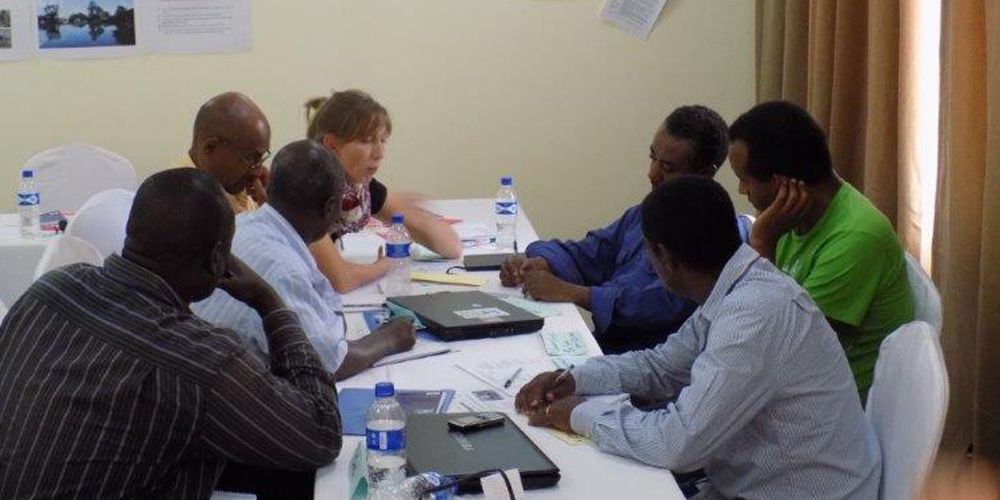7. October 2015
 The Regional Workshop for Eastern and Southern Africa was held from 21-24 September 2015 in Pemba, Mozambique and brought together Consortium partners from Ethiopia, Mozambique and South Sudan. The main objectives of the workshop were to:
The Regional Workshop for Eastern and Southern Africa was held from 21-24 September 2015 in Pemba, Mozambique and brought together Consortium partners from Ethiopia, Mozambique and South Sudan. The main objectives of the workshop were to:
- Share good practices and lessons learnt in order to improve project practices and scale up successful approaches;
- Address (common) specific topics, technical questions and project challenges and find solutions (e.g. water quality testing, financial sustainability of water schemes, hygiene promotion);
- Plan joint activities (e.g. trainings, workshops, and publications) including advocacy and policy development;
- Present, discuss and enhance know-how about the Consortium procedures and tools (i.e. planning, implementation, monitoring & reporting and evaluation).
The workshop was a mix of interactive activities and presentations by the facilitators and participants, which resulted in active participation and lively discussions between the 21 participants. During a World Café session each project team was asked to identify the three main technical and/or knowledge gabs in their respective project. They then “received” visits from two different “consultancy teams” (other project teams), who would give advice on the questions asked. In an other session, success factors and bottlenecks to good and efficient hygiene promotion were discussed. Recommendations, such as to guarantee continued training/follow-up and to involve teachers and local leaders/government from the start were mentioned and discussed.
Water quality testing was another specific topic addressed during the workshop. One of the key findings on two presented case studies from Ethiopia was, that even though safe water was provided at the source, the water quality testing showed high levels of contamination of the water at point of use. This session not only had the objective of discussing why water quality testing at household level/at the point of use should be done, but also how it could be done. The main testing methods were explained and also demonstrated, and the workshop participants tested water samples by themselves.
During a field visit day, the hole group visited the HELVETAS Swiss Intercooperation ORATTA project in Metoro and met relevant stakeholders of the small town water system and sanitation and hygiene promotion activities. They visited latrines, talked with the community about the use of their latrines and asked questions regarding financial sustainability to the private operator, who runs the water system.